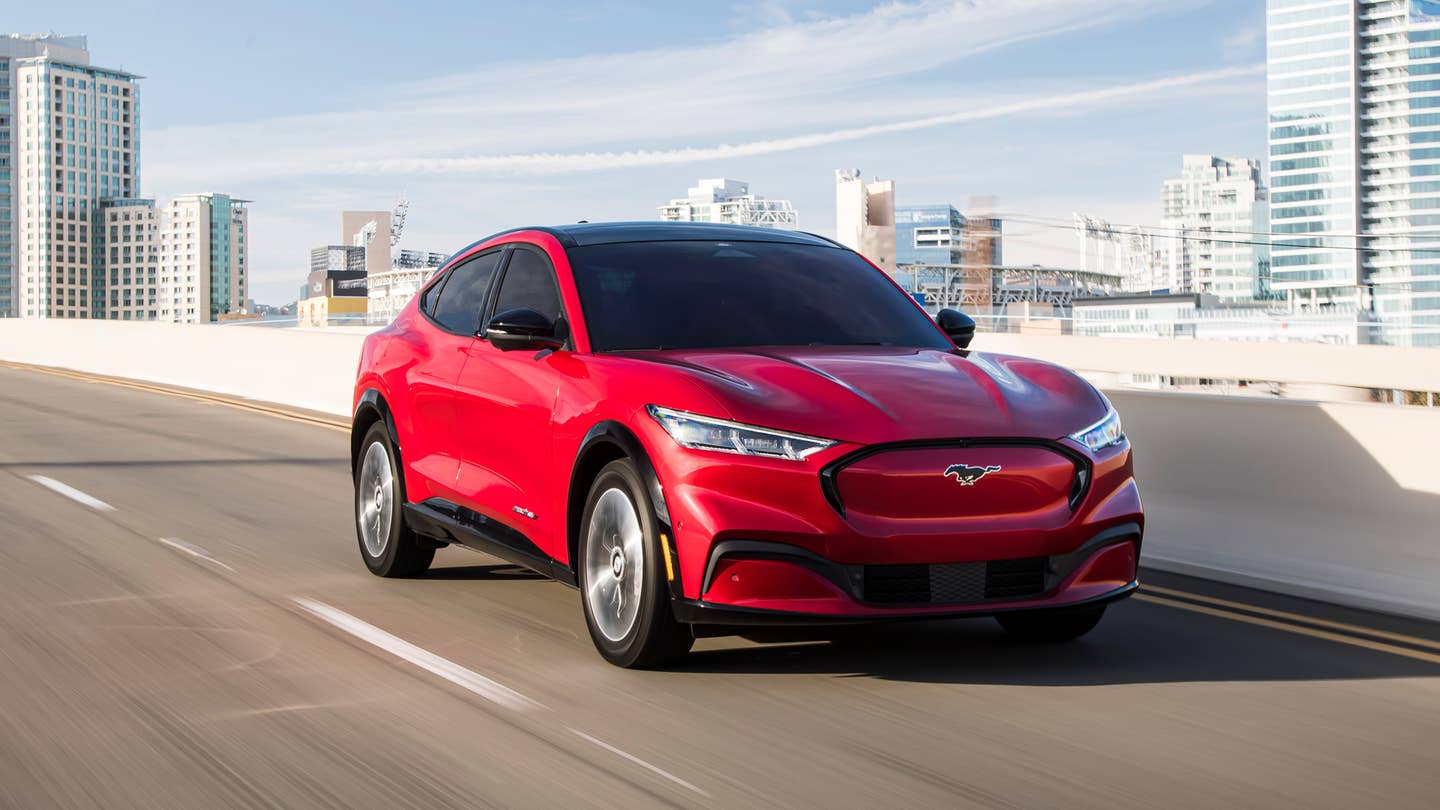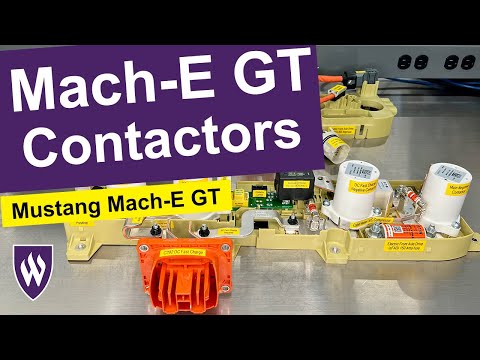Ford Mustang Mach-E Recalled Because Battery Can’t Handle Owners Flooring It
The problem seems to present after one too many “wide open pedal events” or while DC fast charging.

Ford is recalling nearly 35,000 units of the 2021 and 2022 Mustang Mach-E equipped with the extended-range battery over concerns that the electric crossover could lose power while driving. The recall is the Blue Oval's second attempt to resolve an issue with a component found inside of the Mach-E's high voltage battery pack that may fail while DC fast charging or flooring the car's accelerator pedal one too many times.
Ford first issued a software update as part of a 2022 recall. The update would monitor the temperature of the affected part and reduce battery power to avoid overheating, though this appeared to not fully address the defect as owners still reported problems following the update, sparking a federal investigation over the effectiveness of the fix.
"Direct Current (DC) fast charging and repeated wide open pedal events can cause the high voltage battery main contactors to overheat," reads the NHTSA recall report. "Overheating may lead to arcing and deformation of the electrical contact surfaces, which can result in a contactor that is prevented from closing or a contactor that welds closed."
The faulty part in question is the High Voltage Battery Junction Box (HVBJB), also called the Bussed Electrical Center (BEC). Its entire purpose is to "switch" the high voltage battery on and off using a series of electromechanical switches, called contactors. This means that electrical current flows through this device to power the front and rear drive units, or to charge the battery.
According to the recall, some vehicles may have pre-existing damage that occurred prior to the 2022 software fix due to overheating. This damage reportedly reduces the effectiveness of the software fix. Should the contactors weld closed while driving, the vehicle will continue to operate until the next key cycle, but if they are prevented from closing, the vehicle will lose power and coast to a stop.
We asked Ford if the connectors in the HVBJB were perhaps under-specced for the application and did not receive a response at the time of writing. However, a very thorough technical teardown of this part plucked from a car equipped with a standard-range pack (which is not included in the recall) can be found over on Mach-E Forum that may give a better idea of why the failure is occurring. The person who performed the analysis is named Mach-Lee, and they say that the pack is similar to what is found in the more robust Mach-E GT, though the GT's box will have larger components in place.
While the forum member who assessed the HVBJB says that they aren't qualified to judge if the part is properly engineered, they noted that the size of the busbars could withstand approximately 60% of the peak power (560 amps) of the Mach-E's standard range pack. It's not clear if the larger pack shares these components.
"Based on the size of the busbars connecting the pack, I would estimate the continuous rating of this particular HVBJB to be around 350A, which is about 60% of peak power. This should be adequate for everyday driving with occasional 560A maximum acceleration," wrote Mach-Lee. "Prolonged or repeated acceleration will cause the contactors and busbars to heat up to temps over 100ºC for short periods, this is expected. In extreme cases, temps may reach 200ºC, which is too hot and will melt the contactors."

Ford says that its primary change to the flawed contactor design is to increase the flat contact area of the contactors, something already done for the part installed in vehicles built from late May 2022 and onward.
Another concern is just how swamped Ford's techs might be with replacing the HVBJBs in nearly 35,000 cars. The part itself is located inside of the sealed battery pack, meaning that in order to replace just the part, the 1,300-pound battery pack must be dropped from the car and opened on order to access the HVBJB. According to another user on Mach-E Forums, a high voltage battery swap takes approximately 25 hours on a warranty replacement.
Got a tip or question for the author? Contact them directly: rob@thedrive.com
